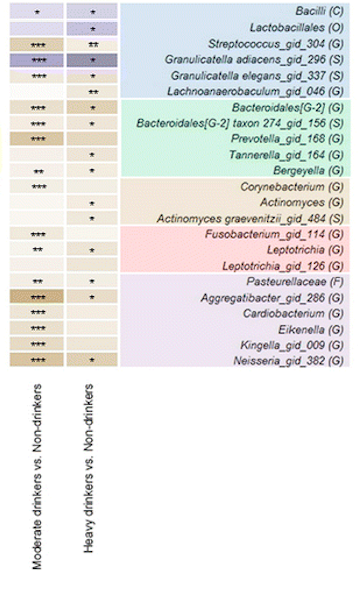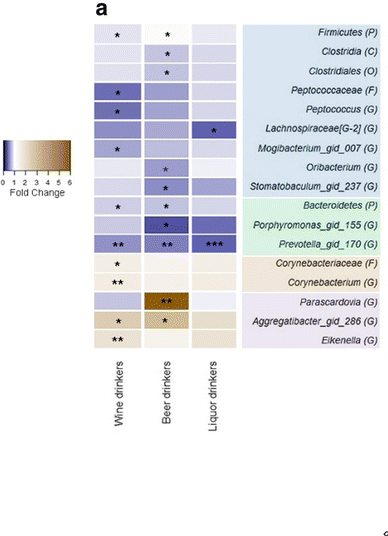Alcohol causes many changes in our bodies - something that those who indulge probably know all too well.
Some are more apparent, like impaired judgment, dehydration and liver damage. Others are less well understood. Because drinks enter the body through our mouths, it makes sense that that particular area of the body may sustain changes caused by drinking. And, a new study has found that that is exactly what happens. A research group from the NYU School of Medicine has found that heavy drinkers have different bacteria (microbiota) in their mouths than those who teetotal.
Before we get to the data, what is the importance of studying the oral microbiome (the genomes of the bacteria in the mouth)?
Our mouths house some of the most diverse communities of bacteria in the body. Of course, they are the reason for cavities and other dental woes, but, they can play a much bigger role in our overall health than we realize. Because the mouth is an entrance into both the gastrointestinal and respiratory systems, there are multiple diseases in those systems that start in the mouth. In addition, people who have periodontitis are at an increased risk of endocarditis and glomerulonephritis. Because of this, it is important to become acquainted with the bacteria in our mouths and how certain behaviors can affect them - including what we consume as food or beverages.
Because heavy drinking has been linked to higher risks of gum disease, suggesting that liquor affects the bacterial makeup of the mouth, the researchers compared the types of bacteria in the mouth between drinkers and non-drinkers. To do this, they analyzed the microbiome of 1044 US adults. The participants simply rinsed their mouths with Scope mouthwash and spit it out. The DNA from the bacteria was extracted and sequenced.
The participants also filled out a detailed questionnaire on alcohol consumption including information such as frequency of alcohol consumption, serving size, and type of alcoholic beverages consumed (wine, beer, and liquor). Moderate drinkers were defined as as one drink per day (or less, but not zero) on average, for women. For men, it was less than 2 drinks per day on average. Women and men who had greater than that were considered heavy drinkers.
The researchers found that the diversity of the bacteria in the mouths of heavy drinkers and non-drinkers was very different as were the overall bacterial profiles. The list below shows a measure of the differences between moderate drinkers vs. non-drinkers (the column on the left) and heavy drinkers vs. non drinkers (the column on the right.)

Generally, the concentration of some good bacteria was less abundant in heavy drinkers, while some nasty bacteria were more prevalent in the mouths of heavy drinkers. The researchers went on to separate the profiles of participants who were categorized as drinking only wine, beer or liquor. (These data can be seen below (1))
Although it is unclear why heavy drinking would have this effect on oral bacteria, this is the first time that a difference has been illustrated and provides an interesting jumping off point for further research on the role of oral bacteria in alcohol-related diseases.
(1) Heatmap of fold changes and the correlations of the taxa related to alcohol drinking type (wine, beer, liquor.)

Source: Fan X. et al. Drinking alcohol is associated with variation in the human oral microbiome in a large study of American adults Microbiome 2018 6:59 https://doi.org/10.1186/s40168-018-0448-x

